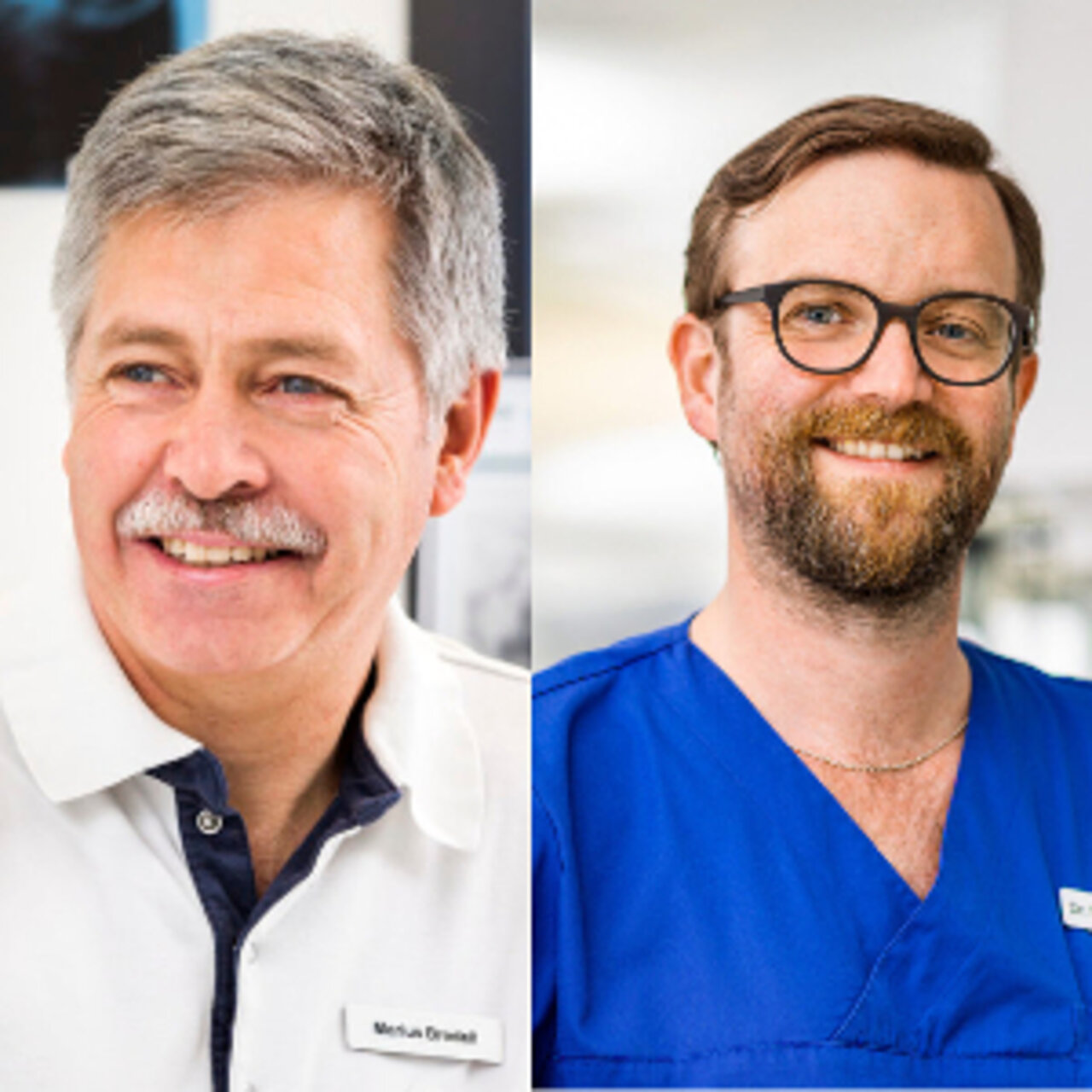Specialists in Craniomandibular dynsfunction
3 Specialists found
Information About the Field of Craniomandibular dynsfunction
What is CMD syndrome?
The medical term "syndrome" refers to a combination of symptoms which occur together. Although the underlying cause is not necessarily known.
The syndrome of craniomandibular dysfunction is known more or less under other names, too. The syndrome describes a painful disorder of the temporomandibular joint.
Causes of CMD
One possible explanation why malocclusion and jaw pain arise is an enhanced tension in the chewing muscles.
In some cases, even unnoticed and unintentional clenching of the teeth and grinding motions for a long period of time can lead to joint damage. There are many possible causes, for example, poor posture, jaw trauma, misalignment of the teeth, psychological pressure and stress as well as sleep disturbances.
What are the symptoms of CMD?
While the symptoms can be variable, they are mostly characterized by pain in the jaw. Tension can extend into the neck, throat, shoulder and back, or radiate into the head area. Furthermore, patients may have trouble opening their mouth and chewing, hear cracking and rubbing noises when moving the jaw, and have problematic tooth alignment. It can also possibly affect the ear, resulting in tinnitus, vertigo and ear pain.
Altogether, these symptoms can be quite distressing for the patient.
CMD Test
The medical diagnosis is established by a thorough anamnesis, which means interview, a physical examination which is potentially followed by imaging procedures such as X-ray,MRI or CT scans.
Can CMD be cured?
Craniomandibular dysfunction is more of a descriptive label of the typical symptoms rather than a specific illness. Depending on what triggered the symptoms, they may regress and resolve.
Treatment of CMD
The complaints described above can be seen as the need for a change in one's life style. In order to treat the problem, it is essential to recognize and understand the triggers.
Facial relaxation techniques, which can be practiced by the patient, for example standing in front of a mirror, can be helpful. There are also other methods that promote overall relaxation. Physiotherapy can frequently help alleviate the problem.
Any pre-existing dental and orthodontic issues should be addressed first.
Further methods include hypnosis, acupuncture, certain medications, psychotherapy and a special dental brace.
What are the costs?
As no standard therapy is available, no statement can be made about the costs.
Which doctors are specialists for CMD?
For this syndrome, there are no distinct specialists among physicians. However, the choice of therapy can also depend on the specialist who is consulted first. Apart from your family doctor, dentists, orthodontists or oral surgeons, osteopaths as well as psychotherapists can be your contact physicians.
Additionally, physiotherapists and alternative practitioners may be able to help.
If you're in need of a doctor, you expect the best medical care possible. So of course patients are curious to find out what clinic to go to. As there is no objective way to answer this question and a legitimate doctor would never claim to be the best, patients must rely on a doctor's experience.
Let us help you find an expert for your condition. All listed doctors and clinics have been reviewed by us for their outstanding specialization in the field of craniomandibular dysfunction and are looking forward to your inquiry or wish for treatment.


